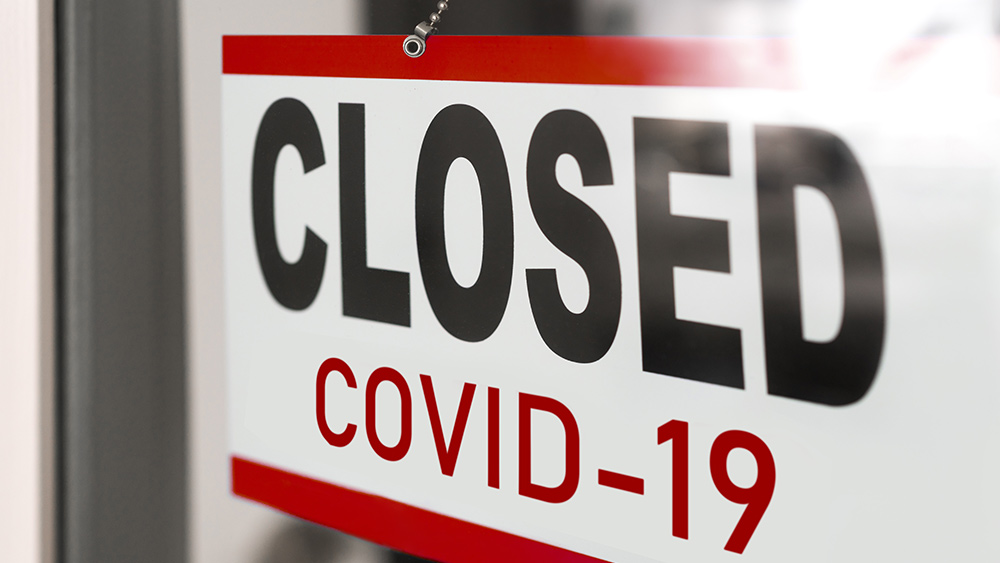Coronavirus pandemic will cost the US $16 trillion, say economists

(Natural News) The ongoing coronavirus pandemic will cost the U.S. $16 trillion – about four times the amount lost during the Great Recession of 2007 to 2009 – estimate Harvard University economists Lawrence Summers and David Cutler.
In a paper published in the Journal of the American Medical Association, the economists wrote that “lost income from the COVID-19 induced recession” comprised approximately half of the $16 trillion, while “the economic effects of shorter and less healthy life” made up the rest of the amount. Almost $7.6 trillion of the $16-trillion-estimate stemmed from lost income caused by COVID-19 measures such as lockdowns. For the remaining amount, they factored in the cost of premature deaths, long-term health effects and the rise in mental health conditions brought about by the coronavirus pandemic.
The economists measured premature deaths by ascribing value to “statistical lives,” an approximate measure economists use based on how much it is worth for people to reduce their risk of dying or getting sick. A statistical life is assumed to be worth $10 million in environmental and health policy; based on a conservative estimate of $7 million, the economic cost of premature deaths amounted to about $4.4 trillion.
Some COVID-19 survivors are likely to suffer long-term health issues such as respiratory complications. Given that the number of people who survive severe or critical cases of COVID-19 amounts to seven times higher than the number of fatalities, these complications might impact more than twice the number of people who get well in the long run. Summers and Cutler gave an estimate of $2.6 trillion for these long-term health issues.
They also acknowledged the coronavirus pandemic’s mental health impact, noting an almost four-fold rise in the number of adults reporting symptoms of depression or anxiety. With about 80 million currently suffering from mental health issues at a yearly cost of $20,000 to address, the economists pegged the cost of COVID-19’s mental health impact at about $1.6 trillion. (Related: An invisible danger: Coronavirus pandemic a threat to the mental health of Americans.)
The economists suggest a different approach to addressing the coronavirus pandemic
Summers and Cutler called the coronavirus pandemic “the greatest threat to prosperity and well-being the U.S. has encountered since the Great Depression” in their paper, adding that the “immense” losses were more than twice that of all the wars the U.S. has fought since Sept. 11, 2001 – including those in Afghanistan, Iraq and Syria.”
As such, they recommended policies to “materially reduce the spread of SARS-CoV-2” such as wide-scale population testing, contact tracing and isolation – adding that these measures “have enormous social value” and “could prevent many infections.”
The economists also proposed “a fundamental rethinking of [the] government’s role in pandemic preparation,” pointing out that the U.S. prioritizes spending on treatments for acute COVID-19 instead of public health services and infrastructure.
Summers and Cutler suggested allocating a minimum of five percent of any relief bill, such as the CARES Act, which was signed into law in March, toward increased testing and contact tracing measures. They added that investments in testing, contact tracing and isolation should be kept permanent even as concerns about the pandemic begin to subside.
The Harvard University economists’ emphasis on testing, contact tracing and isolation would have resulted in a better outcome than lockdown orders. (Related: More than 30,000 health experts sign declaration opposing Covid-19 lockdowns.)
Even the World Health Organization (WHO) itself has advised against locking down entire countries. WHO Special Envoy on COVID-19 Dr. David Nabarro said: “Stop using lockdown as your primary control method. Develop better systems, work together and learn from each other.” Nabarro pointed to the economic impact of lockdowns in different countries to show that these also cause significant harm.
For now, it will take a long time before the U.S. and the rest of the world recovers from the coronavirus pandemic’s impact on public health and the economy.
Sources include:



